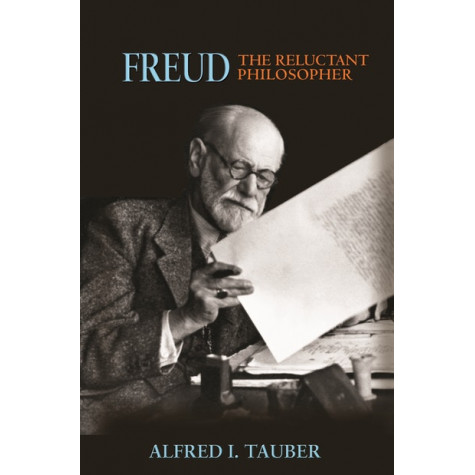Freud, the Reluctant Philosopher
- Author:
- Pages: 344
- Year: 2010
- Book Code: Paperback
- Availability: In Stock
- Publisher: Princeton University Press
-
₹2,995.00
Freud began university intending to study both medicine and philosophy. But he was ambivalent about philosophy, regarding it as metaphysical, too limited to the conscious mind, and ignorant of empirical knowledge. Yet his private correspondence and his writings on culture and history reveal that he never forsook his original philosophical ambitions. Indeed, while Freud remained firmly committed to positivist ideals, his thought was permeated with other aspects of German philosophy. Placed in dialogue with his intellectual contemporaries, Freud appears as a reluctant philosopher who failed to recognize his own metaphysical commitments, thereby crippling the defense of his theory and misrepresenting his true achievement. Recasting Freud as an inspired humanist and reconceiving psychoanalysis as a form of moral inquiry, Alfred Tauber argues that Freudianism still offers a rich approach to self-inquiry, one that reaffirms the enduring task of philosophy and many of the abiding ethical values of Western civilization.
About the Author
Alfred I. Tauber is professor of philosophy and the Zoltan Kohn Professor of Medicine at Boston University, where he is also director of the Center for Philosophy and History of Science. His books include Science and the Quest for Meaning, Patient Autonomy and the Ethics of Responsibility, and Henry David Thoreau and the Moral Agency of Knowing.
Review
"Tauber's patient exposition of Freud's suppressed philosophical heritage becomes a tour de force when he turns back beyond Schopenhauer to Kant." —Lesley Chamberlain, New Statesman
"The main focus is Freud as an ethical and social thinker who, while drawing on multiple sources of classical humanism, prepares the way for a new humanism informed by the insights of psychoanalysis. Tauber offers important chapters devoted to the intellectual ferment of 19th-century German philosophy and its influence on Freud." —Choice
"Tauber provides a scholarly exposition, and the book is helpful for appreciating the diverse background influences on Freud's thinking. Furthermore, Tauber also clearly has an exhaustive knowledge of Freud's writing and is well read with respect to contemporary philosophically oriented psychoanalytic writers." —Simon Boag, PsycCRITIQUES
"I feel a great deal of sympathy towards Tauber's project, and his analysis is rich, interesting and engaged." —Johan Eriksson, Scandinavian Psychoanalytic Review
"[A] tour de force." —Elisabeth Young-Breuhl, Journal of the American Psychoanalytic Association
"This is an attractively written and deeply illuminating study of Freud as moral philosopher. . . . This book goes a long way to explain the positive side of the continued interest and, indeed, to explain why Freud will continue to fascinate, leaving far behind by-now stale debate about whether or not he created a science." —Roger Smith, British Journal for the History of Science
"Freud, the Reluctant Philosopher is an erudite, thoughtful and challenging book, which amply repays the investment of working through it." —Daphna Erdinast-Vulcan, European Legacy
"Rarely does a book cause one to rethink an entire field. Alfred Tauber's detailed and accessible study of the philosophical underpinnings and implications of Freud's work (and psychoanalysis in general) will have this impact on both the humanities and psychoanalysis. Tauber's rigorous framing of Freudian thought in the context of the history of philosophy (and the history of science) makes this the most important book on the shape of Freud's thought in recent times."—Sander L. Gilman, Emory University
"To his enormous credit, Tauber avoids the selective approach that is almost always taken by philosophers studying Freud. Instead of isolating facets of this multifaceted thinker, Tauber has striven to give an integrated and holistic portrait. He also provides a careful and detailed account of Freud's debt to German thinkers close to his own time. This is an important contribution."—Jennifer Radden, University of Massachusetts, Boston
Tags: Freud, the Reluctant Philosopher, Alfred I. Tauber, 9780691145525, Princeton University Press

